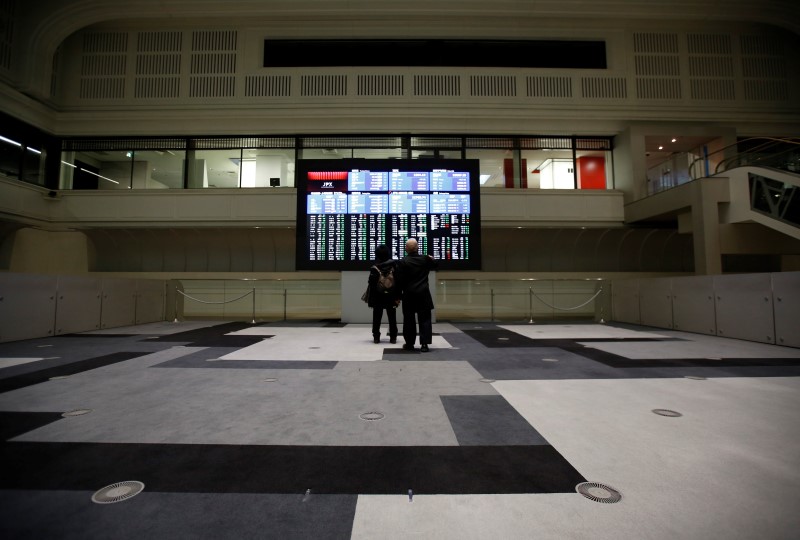By Hideyuki Sano
TOKYO (Reuters) - Asian shares were on the back foot on Wednesday as a nascent recovery in the oil market lost momentum after Saudi Oil Minister Ali Al-Naimi effectively ruled out production cuts by major producers anytime soon.
MSCI's broadest index of Asia-Pacific shares outside Japan (MIAPJ0000PUS) fell 0.5 percent, slipping further from Monday's six-week high while Japan's Nikkei (N225) shed 1.4 percent.
U.S. S&P 500 Index (SPX) fell 1.25 percent on Tuesday to 1,921.27, having failed to rise above its peak hit on Feb 1, with energy and material sectors being a major drag as oil prices quickly gave up Monday's hefty gains.
Naimi told oil executives on Tuesday that markets should not view the agreement by four major oil producers to freeze at the January level as a prelude to production cuts.
While Naimi said he was confident more nations would join the pact, Iran was seen as unlikely to agree to the output cap, which does not allow Iran to regain the market share it lost during sanctions.
U.S. crude futures (CLc1) settled down 4.6 percent at $31.87 a barrel and Brent (LCOc1) settled 4.1 percent lower at $33.27 a barrel.
"I suspect few people were expecting a deal to cut production so his comments are hardly a surprise. Yet, the latest development seems to suggest that for oil producers to get more united they will have to feel more pain," said Ayako Sera, senior market economist at Sumitomo Mitsui Trust Bank.
The toll from low oil prices is also spreading to banks that have exposure to the energy sector, as roughly a third of U.S. shale oil producers at high risk of slipping into bankruptcy this year, according to a study by Deloitte.
JP Morgan (N:JPM), the largest U.S. bank by assets, said it will increase provisions for expected losses on energy loans by $500 million, or more than 60 percent of its existing reserves.
JPMorgan shares fell 4.2 percent on the announcement.
Investors instead favored safer assets such as U.S. Treasuries, with the 10-year notes yield falling to a two-week low of 1.714 percent (US10YT=RR).
Gold
In the currency market, traditional safe-haven currencies such as the yen and the Swiss franc outperformed.
The yen
The Swiss franc gained broadly, hitting a one-month high on the euro at 1.09165 franc per euro (EURCHF=R) on Tuesday.
The franc got a lift also as the head of its central bank warned it could not "endlessly" take further steps to ease monetary conditions.
The euro in contrast was hit by a key index on German business climate showing sentiment among German manufacturers plunged by its largest amount since the bankruptcy of Lehman Brothers in 2008.
Against the dollar, the euro

The British pound